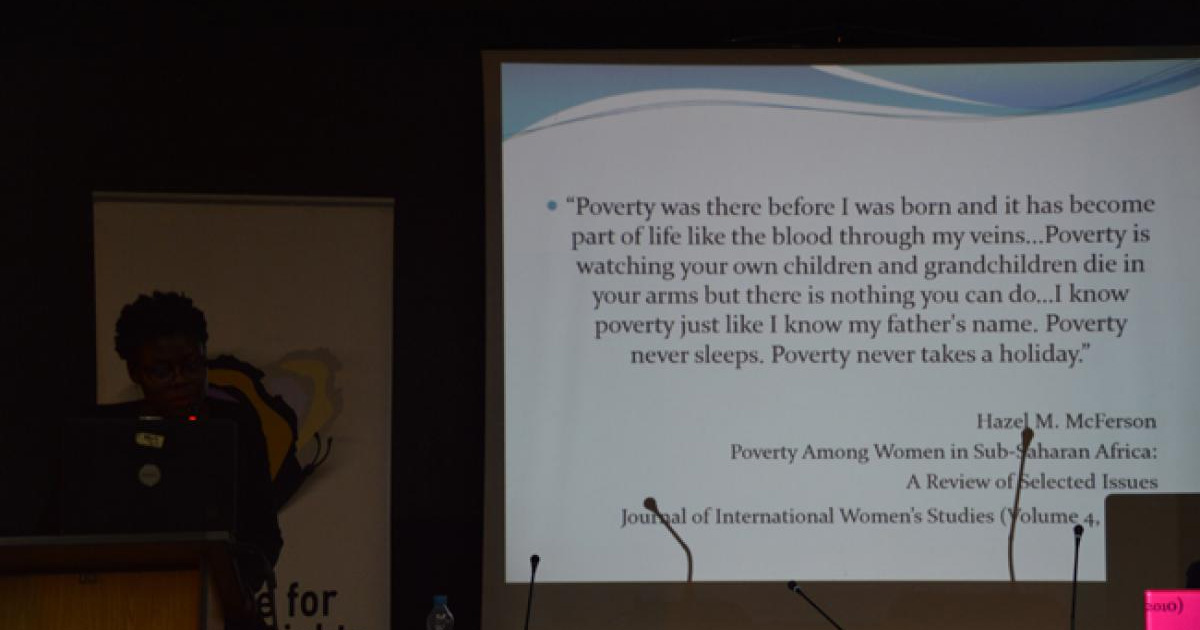The African Human Rights Moot Court Competition Conference took place at the University of Mauritius on 22 September 2017. Every year, the conference is one of the major highlights of the Moot Court competition. The conference utilises the platform of the Moot Court, which brings together students and faculty representatives from over 54 different universities around Africa, to raise, discuss and advance important issues of human rights in the continent. The 2017 conference theme was “The Maputo Protocol and poverty alleviation: Towards the realisation of women's rights in Africa”.
This theme addresses an issue critical for most African countries. It was deliberately selected in view of the fact that Mauritius, the host country for the Moot Court, had taken so long to ratify the Protocol to the African Charter on Human and People’s rights on the rights of women in Africa (Maputo Protocol) which it signed in 2005 but only ratified in June 2017.
The conference was opened by the Director of the Centre for Human Rights, Prof Frans Viljoen. The Commissioner and Special Rapporteur on the Rights of Women in Africa of the African Commission on Human and Peoples’ Rights, Judge Lucy Asuagbor and the Head of Department, University of Mauritius delivered opening remarks. Five papers were presented by researchers on the situation of women in their different countries and examining the efficacy of the Maputo Protocol in securing women’s rights. Rajen Narsinghen and Tania Diolle spoke about the Mauritian experience of poverty alleviation while Roopanand Mahadew and Dr Ashwanee Budoo made a presentation on the Maputo Protocol and the realisation of women’s rights in Mauritius. Vishni Nursimhulu spoke about the non-domestication of the Maputo Protocol and it potential impact on marital rape as a human right violation in Mauritius.
In the second session, Henrietta Ekefre discussed realising the social economic rights of women through the Maputo Protocol while Dr Thompson Chengeta spoke about Zimbabwe’s legal duties and the plight of elderly women in rural areas. A visual presentation was also made by Adebayo Okeowo, speaking to the multidimensional impact of poverty.
Issues were raised by the conference participants surrounding the efficacy of international laws and instruments, the tangible effect that the Maputo protocol can have in the lives of women and girls in the country, poverty in Mauritius and its possible link to corruption. The role of civil society organisations, in a country like Mauritius that has very few NGO’s that work on human rights, was also discussed.
The ratification, domestication and implementation of the Maputo Protocol is vital to the advancement of women’s rights as it provides the means by which citizens of a State can hold their government accountable for the fulfillments of the rights enshrined within the Protocol. The issue of poverty alleviation is one of the many issues the Protocol addresses as it relates to the rights of women and girls. This is particularly important in the context of the feminisation of poverty in Africa.
The conference reiterated the important role that every stakeholders must play in protecting and promoting the rights of women and girls in their different countries. Knowing that each milestone gained in the fight for women’s rights is hope for tomorrow and that the ball is in all our courts as we cannot continue to keep silent and do nothing while the rights of women and their inherent dignity are trampled upon.


